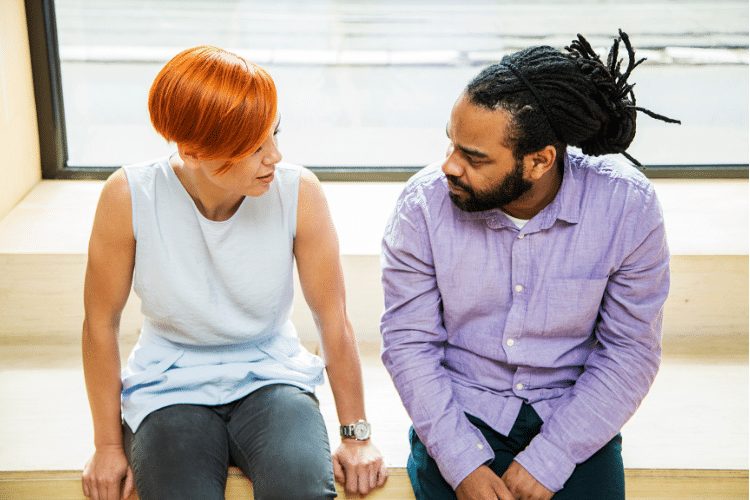You may not know how passionate I am about relationships. I have had a lifelong fascination about how to be in supportive, healthy, growth-focused, and loving relationships with other humans. I have had some GINORMOUS failures in that exploration. Like some spectacularly bad ones. I have also had really special and life changing connections happen in my exploration of relationships. Both the failures and the new possibilities have taught me tons.
My romantic partnership with my husband Steven has been a playground of experimentation, learning, and growth for almost two decades. 2022 has been a year to trust myself more and a big year of learning for many of my clients. I was talking with a client the other day. She was in a disagreement with her biz partner. Again. In her world to resolve the disagreement, she had to either concede and let her partner “win” meaning that my client went with her partner’s solution. OR she had to get her partner to concede to her way so she could “win”. Those two scenarios had been tried already. Repeatedly. Still there was no resolution to the disagreement. Why?
At this moment, you might find yourself curious about what exactly this argument was about. We tend to think that if we can get to the bottom of the argument that it can be resolved. I know I find myself curious to see situations from all sides. Are you a problem/solution oriented person too? Sometimes knowing the specific details of a disagreement just feeds assumptions and creates bigger distance between people.
he model of relationship in which a power struggle is constantly present when people come from two different perspectives is what I like to call the “Old Model” or the Win/Lose model. It is seriously outdated and ineffective for our modern life. Our roles in relationships are no longer set. We are living in the 21st century. To be clear, there are engagements between people where that power struggle is part of the game. Think about when you watch an athletic competition. There are two sides and both are fighting to win and avoid losing. Makes sense right in tennis, football, strong man competitions?! But in a relationship? Where the intention of engagement is to be connected or to collaborate or have fun or to feel or share love. Uh that doesn’t work.
I declare that it is time to upgrade our relationship model. Over the next few weeks, I am going to both breakdown in more detail the current Win/Lose model. Help you see it more in action. Cause let me tell you that it is the source of so much separation, hurt feelings, and the experience of feeling alone in so many relationships. Plus I will introduce you to this new model. This model comes from the learning I have had from experimentation. After years of personal development, spiritual awakenings, and the books I have read, the model was just there to be expanded on. It is fixed. Meaning where there is credit to give, I will cite the books and from whom I took classes. Also it is changing as clients experiment with it in business, marriages, families, and out in the world in conversations that are important.
For this week I will leave you with these questions:
When you are “relating” with someone else and it is going well from your perspective, ask yourself these two questions:
- What is it you are trying to give to the other person?
- What is it you are trying to receive from the other person?
When you are “relating” with someone that begins a disagreement, ask yourself these two questions again:
- What is it you are trying to give to the other person?
- What is it you are trying to receive from the other person?
How do the answers change when you are in two different spaces? Why do you think that is? What is your intention in each of those circumstances?
One of the key characteristics of the Win/Lose relationship model is the requirement of conceding one way of the other. How do we know this? Because when a relationship breaks apart, there is a fair amount of energy spent figuring out who was the cause of it ending. I have been coaching and intuitively tapping into relationships for clients for 20 years. I have rarely had a conversation about a business partnership, marriage, or friendship ending where people say ‘It is actually great. The relationship had run its course. Now we are both free to create what is next.’ It is usually either my client making themselves wrong about not being enough in the relationship or making their former friend, colleague or partner wrong because they weren’t enough. I wonder what relationship for us would be like if it occurred more in the realm of freedom, communication, and Win/Win for all.
Keep your eyes peeled for next week’s conversation about how to resolve conflict in the new model of relationship.

